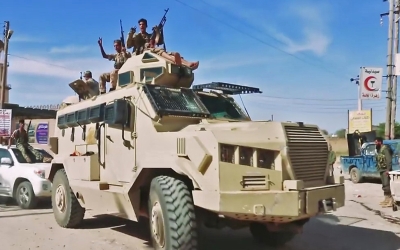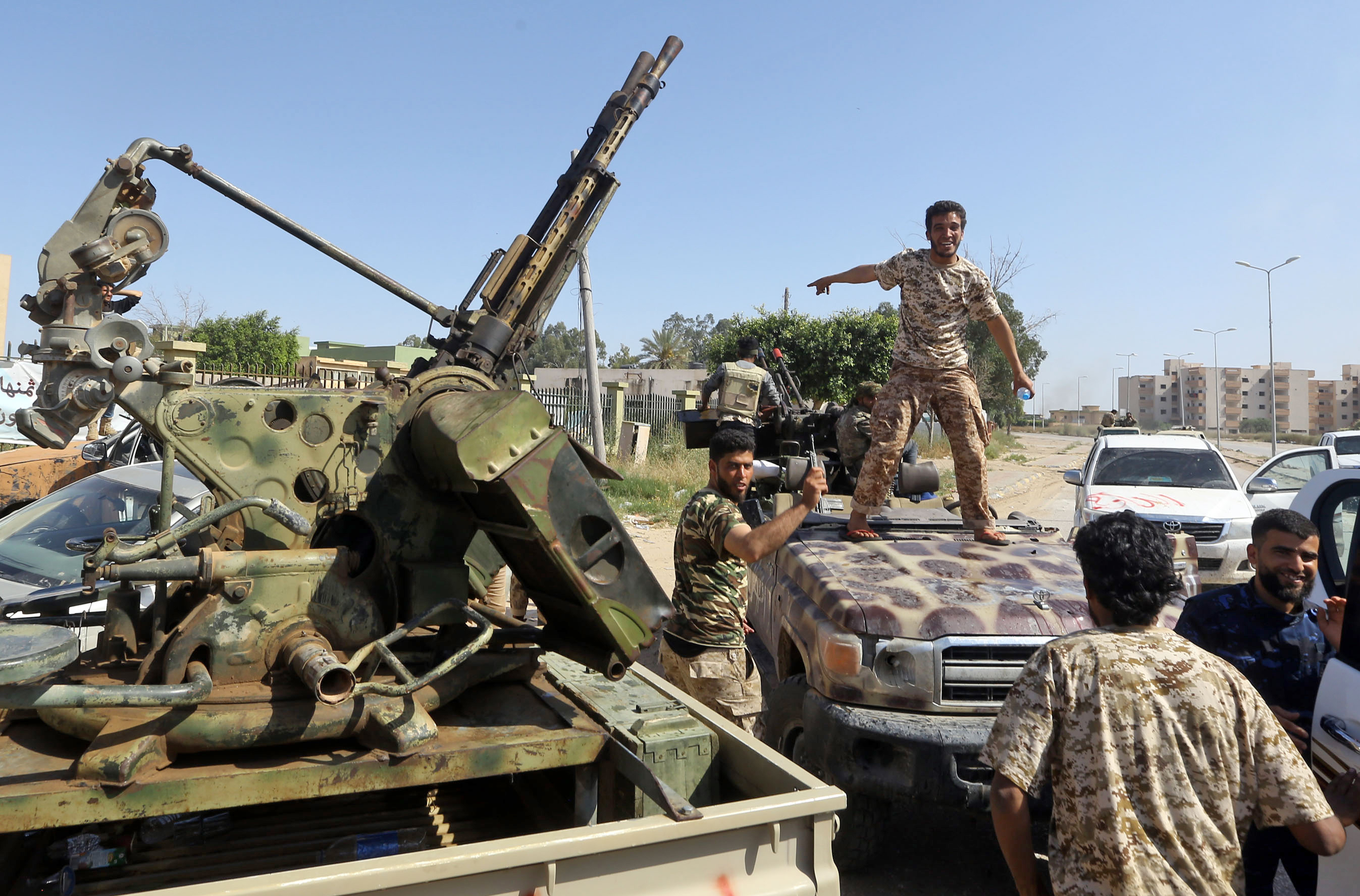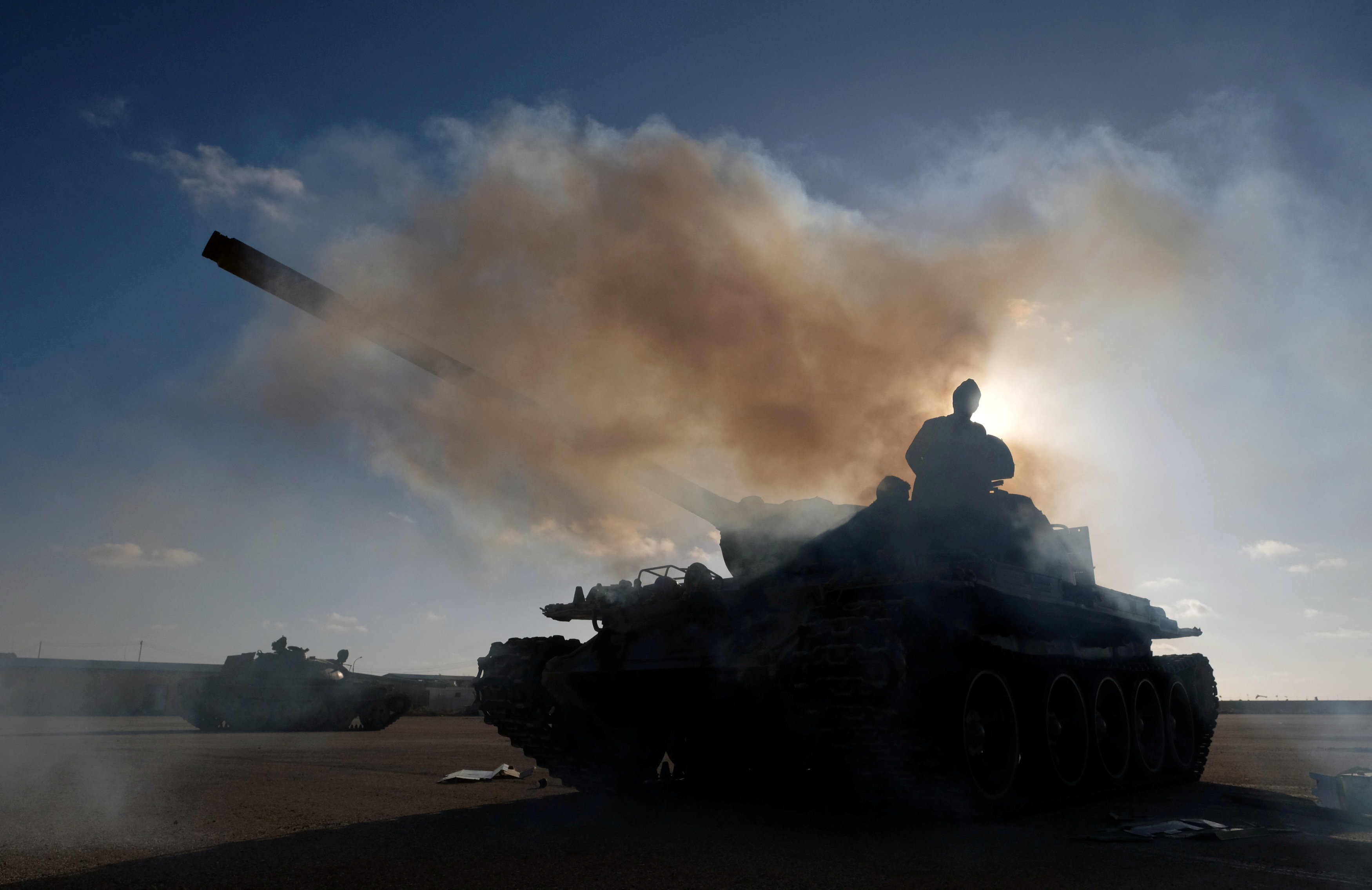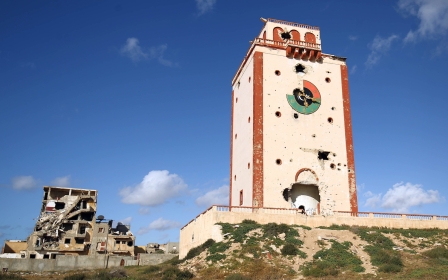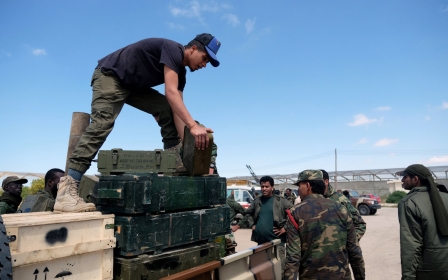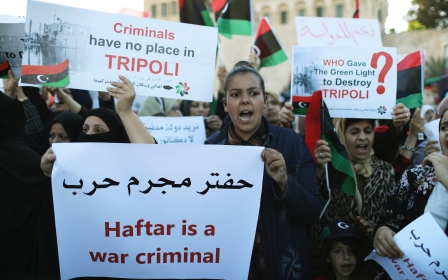Tripoli on verge of protracted urban conflict thanks to Trump's call with Haftar
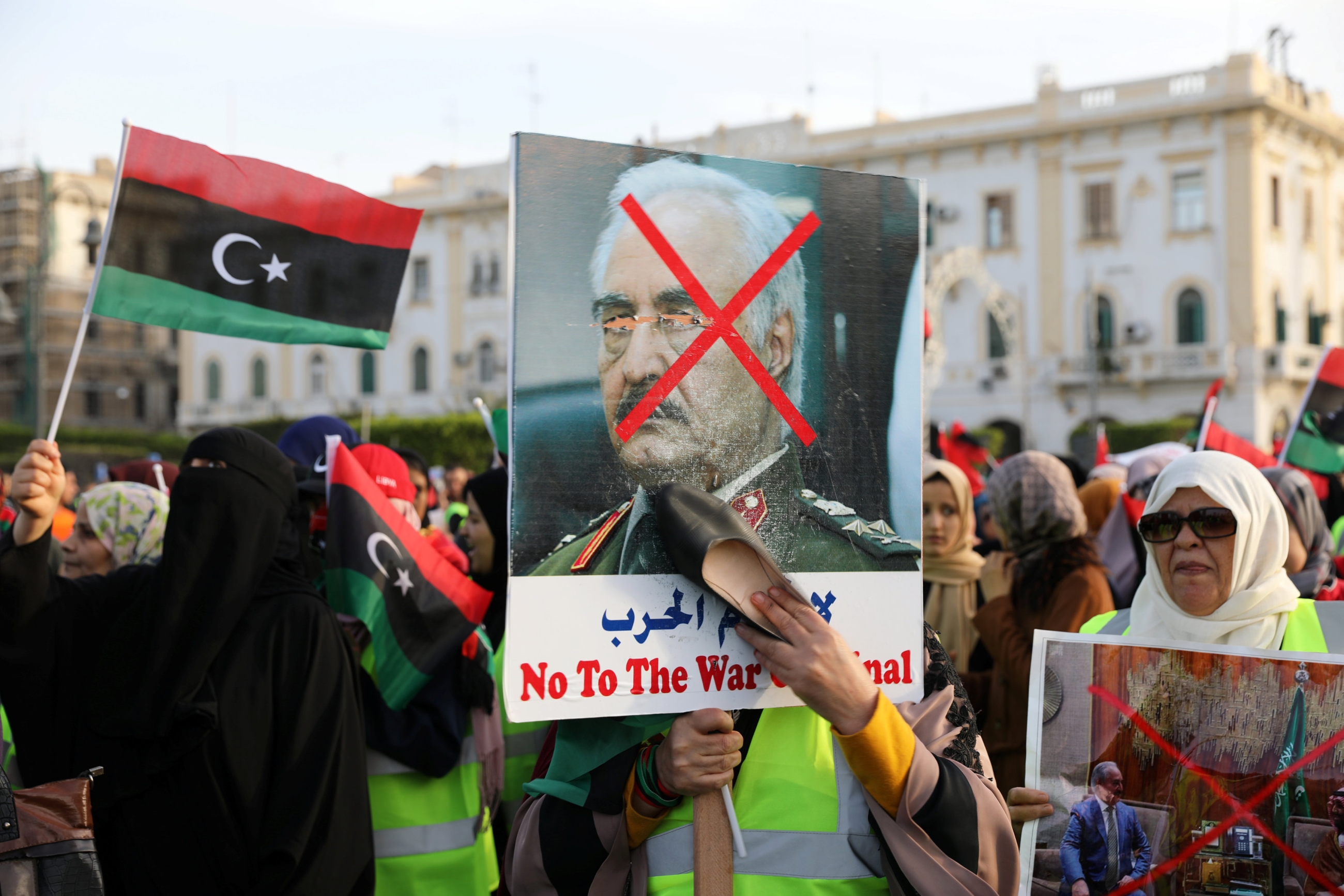
When Khalifa Haftar issued an audio message on 4 April ordering his forces to march on Tripoli he imagined a quick victory. Haftar and his self-styled Libyan National Army (LNA) had spent the preceding three years fighting to consolidate control over first eastern and then southern Libya.
The campaign for Tripoli was meant to be a swift and simple finale.
Two weeks later, his forces remain locked in a stalemate on Tripoli’s outskirts. The camouflaged jeeps with mounted guns massed by the LNA to the south and west of Libya’s capital have made little progress towards the city centre. The country’s embattled governing authority, the Government of National Accord (GNA) – whose members Haftar called “oppressors” – has held firm.
But while Haftar appears to have miscalculated his initial attempt to take Tripoli, analysts and Libya experts say a phone call from US President Donald Trump, along with support from regional allies, may allow Haftar to continue his assault and protract a damaging urban conflict.
On Friday, as the fighting continued, the White House issued a statement revealing that Trump had spoken to Haftar by phone four days earlier. In the call, Trump praised Haftar’s “significant role in fighting terrorism and securing Libya’s oil resources”, the statement said, adding “the two discussed a shared vision for Libya’s transition to a stable, democratic political system”.
On 7 April, US Secretary of State Mike Pompeo issued a statement that the United States “oppose[s] the military offensive by Khalifa Haftar’s forces”. However, Trump’s call has been widely interpreted within Libya as encouragement, or even a green light, for Haftar’s campaign.
More than 180 people have been killed and 800 wounded since the onset of the fighting, according to the United Nations. Human Rights Watch has warned that forces under Haftar’s command have “a well-documented record of indiscriminate attacks on civilians” as well as “summary executions of captured fighters”.
The LNA now says it plans to continue its assault on Tripoli and is aiming to have taken control of the city before Ramadan begins on 5 May.
Unexpected resistance
Haftar’s move on Tripoli was long awaited. Since February 2014, when he first appeared on Libyan television announcing that he planned to take control of government institutions in the capital, the military leader’s intentions have been clear. That effort quickly fell apart, but it appears his ambitions did not.
When the Tripoli campaign began earlier this month, the LNA’s spokesman, General Ahmed al-Mismari, said the group would “clean Tripoli of terrorists of all kinds”.
However, Haftar appears to have underestimated the capacity of Tripoli’s local militias, and of western Libyan opponents of his campaign, according to Mohamed Eljarh, analyst and co-founder of Libya Outlook consultancy group.
“The LNA had the rationale that the militias in Tripoli were not unified and would be easy to overcome through a combination of outreach and a show of brutal force,” Eljarh told Middle East Eye.
“This calculus did not prove correct in Tripoli itself, where an umbrella of militias came together in order to form a defensive line against the LNA advance,” he said.
Additionally, Eljarh said, the LNA believed that forces in the city of Misrata, 200km to Tripoli’s east, would not be willing to mobilise strong resistance to Haftar’s advance.
Instead, prominent local leaders in Misrata met to decide upon a “unified reaction”, according to local press reports. Misrata’s “Anti-Terrorism Force” and fighters from an umbrella organisation known as al-Bunyan al-Marsous deployed in and around Tripoli as the LNA approached.
“Haftar was hoping that as he approached Tripoli, groups in the city with links to the old [Gaddafi] regime would come out and he would enter Tripoli unopposed,” a source close to the GNA’s prime minister Fayez Serraj told MEE.
Saudi sign-off
On 27 March, one week before the offensive, Haftar visited Saudi Arabia to meet with King Salman and Crown Prince Mohamed bin Salman. There, the Saudi rulers appear to have offered support for Haftar’s plans to take Tripoli. The Wall Street Journal has reported that Saudi Arabia supports and is financing Haftar’s campaign. “We were very generous with him,” the paper quoted an anonymous Saudi official as saying.
The day before Trump’s conversation with Haftar, the LNA commander had travelled to Cairo to meet with Egyptian President Abdel Fattah el-Sisi. Sisi has a close relationship with Trump, and the language of Trump’s comments praising Haftar mirrored a statement issued by Egypt’s presidency on Sisi’s meeting with the Libyan.
Developments in neighbouring Algeria may also have influenced the timing of Haftar’s campaign. The 1 April resignation of Abdelaziz Bouteflika, whose government had expressed opposition to Haftar’s plan for a military takeover of Tripoli, has meant Algeria is preoccupied with its own political crisis.
The GNA, which was cobbled together by international backers in 2015 and 2016 and has struggled to assert authority in Tripoli, has nonetheless attempted to curry support from the Algerian government, despite the latter’s troubles. On 18 April, the vice president of the GNA, Ahmed Maiteeq, travelled to Algiers to request “a strong presence for the resolution of the Libyan crisis”.
A stunted international response
The governments of the United States, United Kingdom, Russia, France and Italy – all of which have played important roles in Libyan politics since the country’s collapse in 2011 – were slow to react to Haftar’s campaign.
On 5 April, the UK called an emergency meeting of the UN Security Council to address the matter, however no shared statement could be agreed upon and the body did not call for a ceasefire.
The governments of the US, UK, France, Italy and the UAE issued a statement condemning “military posturing”, however some analysts argue Haftar’s actions have been abetted by the appeasement and support of western powers.
'If you assume that Haftar has only his Libyan forces with their limited resources, he has miscalculated'
- Jalel Harchaoui, analyst
“This escalation is a direct result of western governments and the UN's appeasement of Haftar (with a special mention for French support to his southern operation),” wrote Wolfram Lacher, a Libyan expert at the German Institute for International and Security Affairs.
France, the UAE, Egypt and Russia have all offered Haftar’s forces varying degrees of support since 2014.
“Much now depends on the level of diplomatic support for Haftar,” said Jalel Harchaoui, a research fellow at the Clingendael Institute of International Relations in The Hague.
“If you assume that Haftar has only his Libyan forces with their limited resources, he has miscalculated,” Harchaoui told MEE. “However, Haftar appears to think his links with international allies will mean he can carry this off.”
Harchaoui said it is unlikely Haftar promised international backers a long protracted war, and it is still uncertain if his international support will last.
However, Trump’s intervention may yet prove important in tipping the conflict in Haftar’s favour.
“The US speaking out in favour of Haftar is a major event and could contribute to the GNA losing morale, or a splintering of the alliance against the LNA,” Harchaoui said. “And that increases the chances of a dirty, protracted urban conflict.”
Middle East Eye delivers independent and unrivalled coverage and analysis of the Middle East, North Africa and beyond. To learn more about republishing this content and the associated fees, please fill out this form. More about MEE can be found here.


